Moving to Japan in 2023? Here Are 15 Things You Need To Know
16 min read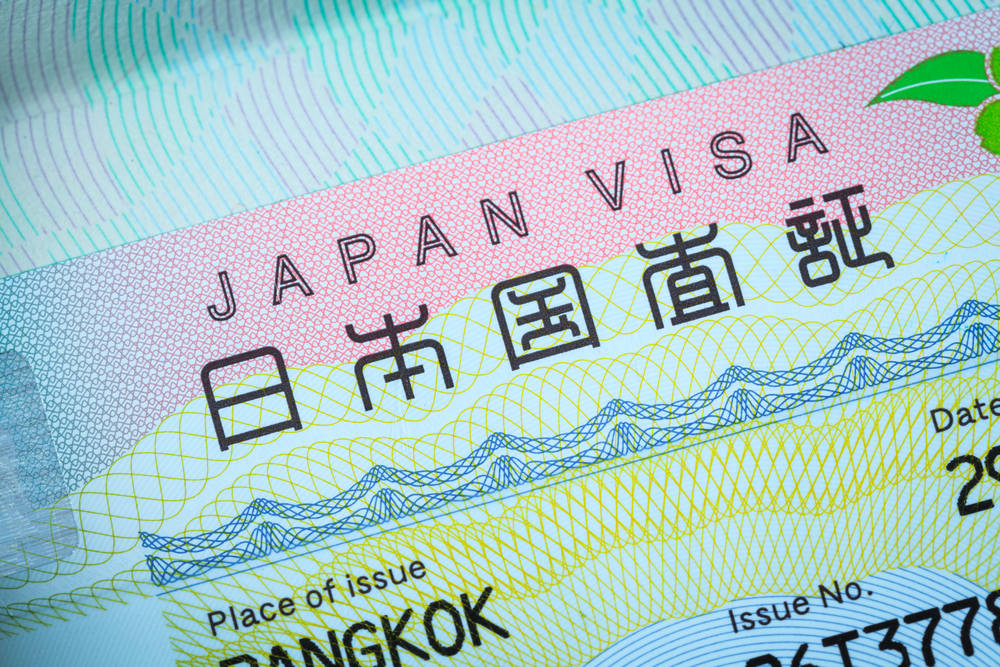
Japan Visa Requirements
The number one thing you must think about, before you can focus on anything else, is what visa you’ll need. To understand what visas you may be eligible for, check in with Japanese embassies or consulates in your country or state. They’ll generally have a list of visas and application requirements on-site. The staff there are also best qualified to answer your questions about the overall procedure. The application process for certain visas may change depending on whether you apply for them while in Japan or in your home country.
There are visas specific to certain occupations and financial situations. All have a set of criteria you’ll need to fulfill for your application to be accepted.
After seeing what visas you’re eligible for, the next thing you’ll want to do is to make a note of what activities you can and cannot do under certain visas. Some visas, such as the student visa, may require additional applications should you want to work while studying in Japan.
We aren’t visa experts, so if you have any questions or concerns you should consult the Embassy of Japan in your country or an immigration law professional. For general information on visas and other immigration policies, consult the Ministry of Foreign Affairs of Japan website.
Moving to Japan Without a Degree
If you take the time to go through all the possible visas, you may notice that some require bachelor’s degree as a minimum level of education. Moving to Japan without a university degree is not impossible, though it may cause additional challenges. For the best up-to-date advice, check with your local embassy.


Saving For Your Move to Japan
Almost all visa applications require some form of personal bank account statement. Some visas need this as proof that the applicant already has a certain amount of money in their accounts before arriving in Japan.
It’s generally recommended to move to Japan with the equivalent of at least ¥1,000,000. This is mainly because there are a lot of upfront costs depending on your living situation (more on that below). Note that moving to Japan with a partner, a family or pets might result in steeper upfront costs and more complicated procedures. It’s important to consider every factor of your daily life when deciding just how much you will need in your first three to six months in Japan.
Moving to Japan With No Money
Simply put, we don’t recommend it.
It’s possible to move to the country with a small amount of money and find a job within your first month with sufficient pay to cover your basic expenses, but this is a risky move. You never know how long it might take you to find a job. Having a financial cushion reduces added stress and anxiety, especially as you get used to a new country and its customs.

Finding a Job in Japan
Getting a job in Japan isn’t as difficult as it sounds and it’s only getting easier. If you’re looking for job boards, a quick Google search will reveal a range of websites. Take your pick. It’s also worth looking at job postings on LinkedIn and Glassdoor for opportunities or more information on companies you’re thinking of applying to. When in Japan, you can also search for jobs through HelloWork, the government’s Employment Service Center.
While it’s possible to get a job in Japan without speaking Japanese, there’s a chance your options will be limited to job such as English teaching, recruiting and programming. These jobs are the most common and the easiest to find. Also, you often don’t need to have much experience in these fields before starting out. Of course, the more skills and experience you have, your chances of getting more prominent roles and being able to negotiate your salary improve.
It’s also possible to find jobs that don’t require Japanese in fields such as banking, marketing, law, graphic design, IT and journalism. While they’re less common than English teaching or recruiting positions, they’re out there. Just keep searching.
If you have some Japanese language proficiency, then much of the Japanese job market is available to you.
Jobs With Visa Sponsorships
There are various types of jobs and roles, including full-time and contract positions. Each one will come with its own set of pros and cons, though the biggest factor will probably be whether a company offers visa sponsorships.
The rule of thumb is that you need to join a company full-time for them to consider sponsoring a work visa, but’s also worth noting not all companies can afford to do so. If a visa sponsorship is important to you when looking for a job in Japan, consider asking the recruiter or company representative about it early in the interview process.
Finding a Job After Graduation
Japan’s job market is unique in that many corporations and companies have positions reserved for new graduates. If you’re a student, you can start looking for jobs while you’re in your last year to start the following spring. Students enrolled in Japanese universities are eligible for a special visa to allow them to properly job hunt after graduation. For more information, consult your country’s local embassy or consulate.
Finding a Job from Abroad
Note that not all companies are equipped or able to conduct interviews with candidates abroad. However, the Covid pandemic has made online interviews easier, and more companies are flexible to take on applicants overseas.
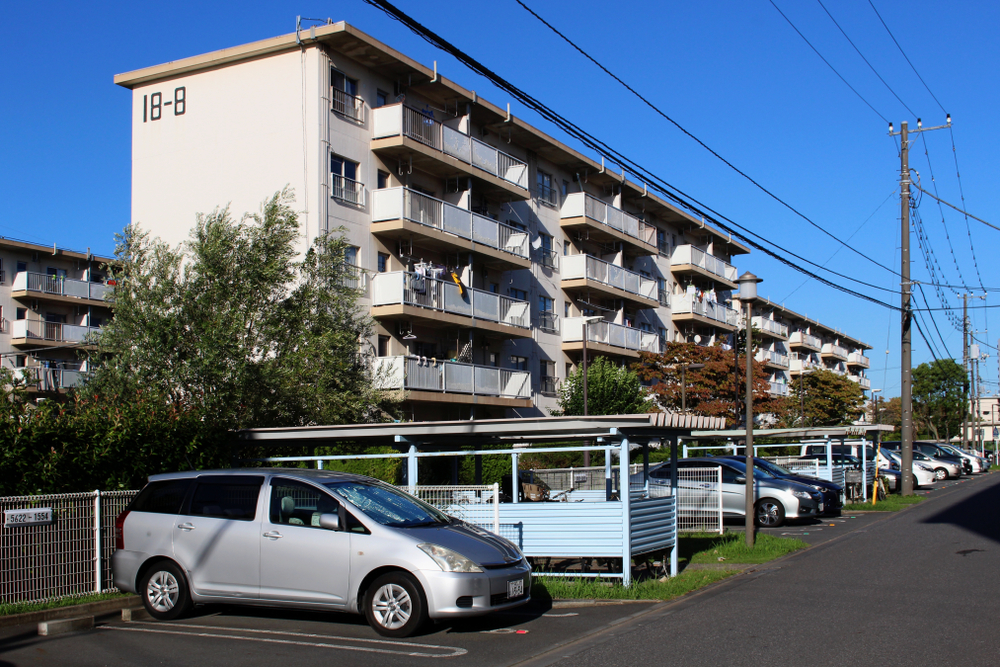
Finding a Place to Live in Japan
The search for a place to live in Japan, especially if you’ve never lived here before, is tricky. Luckily, there are some foreigner-friendly rental companies such as Balleggs, Sakura House, Leo Palace, Oakhouse, Plaza Housing, Suumo and Able.
If you come without a secure job, it’s likely to be very difficult to get an apartment. If that’s the case, you might want to try share houses, which sometimes offer one-year, six-month or even three-month leases, depending on the company.
Regardless of whether you choose a share house or an apartment, be prepared to pay some fees upfront, including, but not limited to: guarantor fees, key money, security deposits and maintenance charges. It can get very expensive very quickly and often the cumulative total of the fee is the equivalent of five to six months’ rent.


What to Bring When Moving to Japan
Moving countries offers a clean slate. While you could bring everything you own from your home country, that could prove extremely costly. If you’re moving to Japan alone, it might be easier to pack and ship essentials (clothes, books, etc.) and buy new furniture once in Japan. There are several Facebook groups like Mottainai Japan dedicated to giving away items they don’t need anymore. Many people offload a lot of their furniture and appliances when they decide to move elsewhere. Share houses are a good option here as well, since many come with at least a bed, while others are fully furnished.
There are certain personal items Japan is notorious for having very few options for, such as deodorant, underwear and undergarments in larger sizes, as well as hair products for curly or coiled hair. We recommend bringing a few backups of your favorite products after checking if they’re available in Japan.
Other things we recommend packing include simple bedding, enough cash to cover at least your first month’s expenses, physical copies of important documents, including your visa papers and passport.

Dealing With (and Preparing For) Culture Shock in Japan
In your first year in Japan, you’re probably going to make a few cultural and social blunders that will keep you up at night. And you probably won’t stop making them. However, after a while, they become fewer and far between.
Culture shock will hit you in waves, no matter how prepared you think you are. That said, you can subdue its effects by doing your research and setting realistic expectations of Japanese life and culture. The Tokyo Mental Health website has a great article that breaks down the specifics of culture shock for newcomers to Japan.
Here are a few tried and tested tips from us:
- Read, listen to and watch content that breaks down the positive and negative aspects of life in Japan. Podcasts are a great place to start.
- Educate yourself on Japanese culture and society. If you plan to work in Japan, learn the basics of workplace manners and work-specific events, expectations and culture.
- Have a few people from your home country you can keep in touch with. This is especially important to avoid feeling isolated during your first couple of weeks here.
- When in doubt, ask questions. This one isn’t even culture shock-specific, but it’ll save you a lot in anxiety to prepare yourself to inquire when you don’t know how to do something or where you should go.
Japan may be very different from your home country in ways that you might not expect or anticipate. Give yourself some time to process and learn from every opportunity. On a similar note, also allow yourself to dislike certain things about Japan. This doesn’t mean you can’t and won’t enjoy your life here.

Setting Up Your Address, Healthcare and Pension in Japan
There are a few administrative tasks you’ll need to take care of in the first few weeks after you’ve made the move to Japan. More often than not, you can get all of these done during a single visit. In big cities, some city halls will have English-speaking staff on-site (you can also call in advance to check when they are available). In smaller cities or rural areas, if you don’t feel confident in your Japanese, it’s recommended to ask a friend, relative or coworker to interpret for you. Don’t forget to give them a small gift of appreciation for their time.
You’ll need to register your address at your local municipal office or city hall within 14 days of moving into your residence. Similarly, if you move house later on, you will need to let your city hall (both the current and the new one) know about your new change of address.
You will also need to enroll in a health insurance system. There are two types in Japan, employee health insurance (kenko hoken) for employees and national health insurance (kokumin kenko hoken) for those who are self-employed or unemployed. Health insurance will generally cover 70 percent of medical expenses, with exceptions including mental health-related expenses and cosmetic procedures.
Residents of Japan over 20 years of age but less than 60 years of age also need to enroll in the national pension system (kokumin nenkin). If you are a full-time employee, a portion of your salary will be deducted to pay toward your pension, but if you are self-employed you will need to keep track of how much you owe based on your income.

Your Residency Card (Zairyu Card)
If you have a visa that permits you to live in Japan for longer than three months, you’ll be given a residency card (zairyu card) at the airport when you go through immigration.
Not to be dramatic, but protect this small piece of plastic with your life.
Your residency card will for a long time be the only valid piece of identification you can have, in addition to your passport. It’s required by law to carry it with you at all times, and not doing so can result in fines. Foreign residents are also required to show their residency cards when police officers request to see it.
If you lose your residency card, you’ll need to apply for it to be reissued within 14 days.
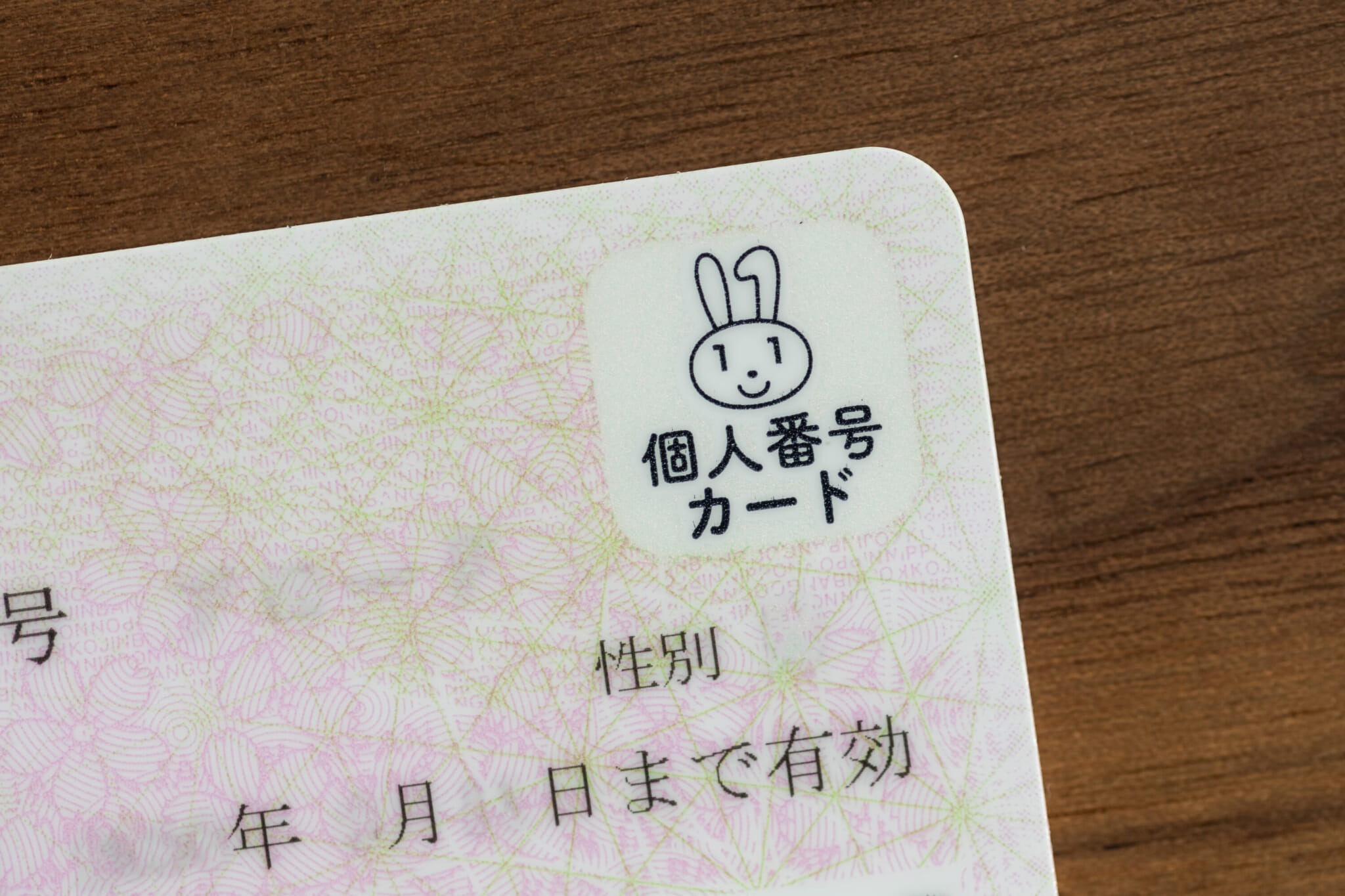

Photo by yu_photo via Shutterstock
Your My Number Card
The My Number Card is Japan’s version of a social security number. The idea is to attribute every resident their own number which will then be associated with other profiles and accounts throughout various sectors of Japanese society. While not as important of a document as your residency card, your My Number card can be necessary for a variety of things, including municipal procedures or residential document requests.
When registering at your ward office within your first week in Japan, you’ll receive an application form or documentation about the My Number Card. We recommend applying for it as soon as possible. The number of services requiring a My Number Card are on the rise and offer several benefits, such as being able to print official municipal documents at the convenience store.
Learn more about the My Number Card.
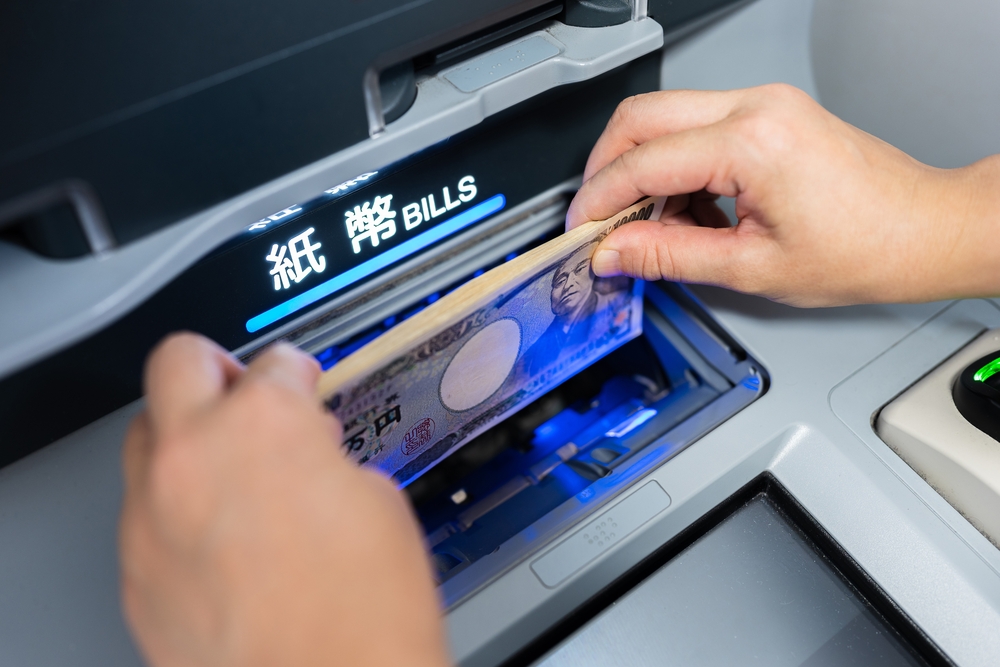
Opening a Bank Account in Japan
You may not feel like you will need a Japanese bank account right away, but you will run into fewer hiccups if you open one and have it at the ready.
While it’s recommended to check out the big banks such as Sumitomo Mitsui (SMBC), Mizuho or Mitsubishi UFJ, chances are you will be turned away if you haven’t lived in Japan for more than three months (sometimes at least six is required). It’s also difficult to find branches with English-speaking staff to guide you through the account opening process.
A few exceptional cases to be aware of that could make you exempt from these rules:
- Some employers require employees to open accounts in certain banks, at certain branches.
- Similarly, some educational institutions require students to open accounts at certain banks, at certain branches.
Best Banks for Foreign Residents
Smaller, independent banks or commercial banks are great options if you need a bank account within the first week of getting to Japan. Some we can vouch for are Sony Bank and SBI Shinsei Bank. They provide a lot of information in English online and are easily accessible in big cities, with Sony Bank being completely online.

Getting a Phone Plan in Japan
The world of phone and internet plans has improved considerably over the past few years. Compared to many countries, Japan offers significantly cheaper options that come with generous amounts of data and other perks.
Best Phone Service Providers in Japan
Cellular networks in Japan are shared among three corporate giants, also known as Mobile Network Operators (MNO): Softbank, au, and NTT Docomo.
Minor providers, or Mobile Virtual Network Operators (MVNO), often piggyback on the bigger networks. This means cheaper prices, but also the possibility of a less stable connection. There are many, but a few notable ones are Line Mobile, IIJimio and Mineo.
MNO contracts resemble what one might consider a standard cellphone plan. While they have a tendency to be on the more expensive side, packages usually include a variety of features such as voicemail, unlimited minutes, etc. They are generally very strict when it comes to the different options you can negotiate. A typical contract with any major provider is two years.
MVNOs are your cheapest option. Contracts are relatively more flexible than their bigger competitors, but you get fewer features to choose from. If you’re sticking to the basics, you can apply for a sim plan (just a phone number), a data plan, or a combination of both for a fraction of the price of an MNO contract. MVNO contracts are also shorter, with some offering contracts as short as three months. The downside is you might have to pay extra for phone calls and text messages that exceed your allowance, but if you’re not making many phone calls anyway, this can be more cost-efficient in the long run.
What You Will Need
There have been cases where providers have been rigorous about asking for a variety of documents from foreign residents. To avoid wasting a trip, be sure to bring your residence card with you. If you want to sign up for a longer contract (more than six months), they might expect your card to be valid for longer.
Most companies only accept payments via credit card. Many will accept foreign cards here, though this may depend on the provider. Some providers also allow debit card, cash and convenience store payments.
Read more on signing up for a phone plan in Japan.

Photo by Heidi Besen via Shutterstock
How to Separate and Throw Away Trash in Japan
Being able to sort your trash is an important aspect of community life in Japan. Residents are required to sort garbage into categories dictated by their municipality. How you sort your trash in Tokyo might not be how you should sort it in Sapporo, for example. There may be differences within cities as well.
When you move into your new home and register your address at city hall, you should receive documentation that tells you how you should be arranging your trash. If not, you can always check your municipality’s website. Some municipalities have rules about the type of trash bag you use as well, so be aware of the details.
If you live in a small apartment building or detached house, chances are you will need to take your trash out and place it in a dedicated area. It’s important to only take out your trash on the days (often before 8am) it will be picked up.
If you live in an apartment complex, your building might have a trash room where you can dispose of any trash at any time, though it’s still important to stick to sorting rules.
Garbage that has been put out in an improper manner will not be collected. Leaving garbage in non-designated places is against the law and can be subject to fines. In addition to causing a nuisance to neighbors, dumping negatively affects the environment.
Disposing of Furniture or Appliances
Disposing of furniture or appliances in Japan is a little bit more complicated. Again, this will vary between municipalities, but furniture will likely need to be disposed of after submitting a pick-up application online. You’ll then need to disassemble it (to the best of your ability), pack the pieces together neatly and bring them to the nearest pickup location.
Appliances can be even trickier. Some companies offer a pick-up option, where they will take away your old appliance when they deliver the new one. There are also companies that can come and pick it up for a small fee. For this too, it’s best to check what your municipality offers and with individual businesses.
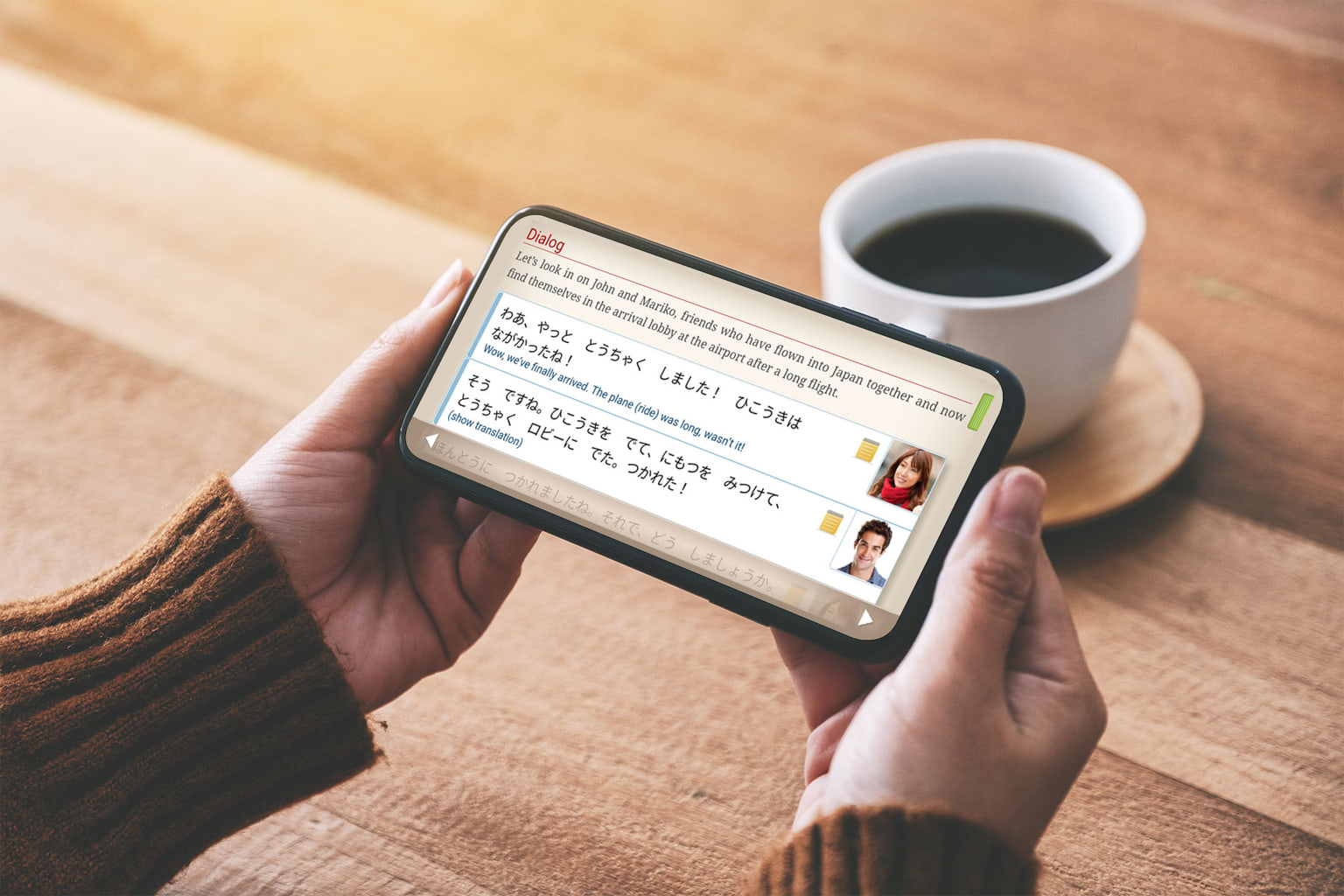
Study Japanese While in Japan
If you’re moving to Japan, studying Japanese (before and after your move) is recommended. Even knowing the basics will greatly ease the stress of daily tasks.
You may find yourself, more than once, standing in the supermarket pointing your camera at a product trying to figure out if it’s cooking oil or vinegar. You will absolutely clean your bathroom with the wrong cleaning product. You’ll master the art of “hai” and “daijobu,” as well as the eyes-widen-head-tilt when you truly do not understand what’s going on.
Language Schools
For those who perhaps perform better in a classroom environment, there are a wide range of language schools in Japan that offer a variety of options, from one-on-one virtual tutorship to in-person lessons focused solely on writing emails. For serious learners who want to improve their level efficiently and quickly, this is the best option.
The downside is that language schools are often expensive. Employees can check with their employers if their company can cover some of the costs or offer Japanese lessons within the firm. Some municipalities also offer Japanese classes for residents taught by local teachers, which tend to be much cheaper than signing up for a course at a major institution.
Apps & Online Tools
Granted, there can be a lot of pressure to study the language seriously, though this is not realistic for all to achieve if you have young children or work a full-time job. In terms of time commitment and price, apps give you the most flexibility. Check out our short series on Japanese learning apps if you need a starting point.
Japanese Textbooks
Perhaps the sweet in-between is to drill through Japanese textbooks. Japanese bookstores such as Kinokuniya, Tsutaya and Maruzen often offer a good range of textbooks for language learners at reasonable prices. You can progress at your own pace and easily go back to grammar points that might not come to you as easily.
The downside is mainly that you need to rely on your own discipline to get through each book, but online study groups can help motivate you — and all you need is a steady internet connection.

Photo by Anna Petek
Making Friends in Japan
Perhaps one of the biggest challenges when moving countries is rebuilding your support network. Of course, colleagues could make for potential new friends, but depending on your industry and job, even that might be difficult if you haven’t gotten over the language barrier.
One way to meet people who have similar interests to yours is to attend meetup events. TW regularly hosts music events for our magazine launches, but there is a myriad of other opportunities to meet new people. The Meetup app is very much used in Japan and can be a great source to find events near you.
Another way foreign residents have had success in making new friends is through fitness, often simply by regularly working out at a local gym. This same technique can apply to whatever other hobby you dabble in.
And of course, there are also the usual social networking sites.

Preparing for Natural Disasters
Japan is prone to natural disasters, such as earthquakes, typhoons and tsunami, no matter what city or region you decide to live in. It’s important that you are ready for potential disasters by preparing ahead, knowing what to do during a disaster and where the evacuation routes are. This includes everything from getting familiar with relevant vocabulary to having an emergency pack ready to go at all times.
Read our guide to emergency preparedness.

Bonus: Information For New Residents of Japan
It’s always good to keep note of information hotlines for new residents. For those moving to Tokyo and the general metropolitan area, here are some recommended resources that offer full or limited support in English and other languages:


